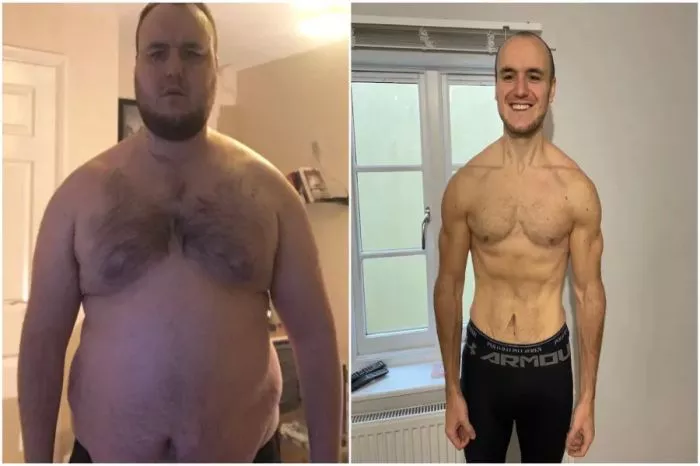Hydration plays a crucial role in maintaining overall health and well-being, including the quality of sleep. Adequate hydration throughout the day can positively impact sleep patterns, cognitive function, and overall energy levels. In this comprehensive guide, we’ll explore the relationship between hydration and sleep, along with five lifestyle changes that can support fat loss while promoting optimal hydration and restful sleep.
Hydration and Sleep:
Regulation of Body Temperature: Proper hydration helps regulate body temperature, which is essential for falling asleep and staying asleep comfortably. Dehydration can disrupt the body’s ability to regulate temperature, leading to discomfort and restless sleep.
Brain Function and Cognitive Performance: Hydration is essential for optimal brain function and cognitive performance, including memory, concentration, and alertness. Dehydration can impair cognitive function and mood, making it more difficult to relax and fall asleep.
Promotion of Relaxation: Staying hydrated throughout the day can promote relaxation and reduce stress, which are essential factors for initiating and maintaining restful sleep. Adequate hydration supports the production of neurotransmitters and hormones that regulate mood and relaxation, such as serotonin and melatonin.
Reduction of Nighttime Awakenings: Dehydration can lead to nighttime awakenings due to discomfort, thirst, or the need to urinate. Maintaining proper hydration levels can minimize these disruptions and promote uninterrupted sleep throughout the night.
Support for Muscle Recovery: Hydration is crucial for muscle recovery and repair, especially after physical activity or exercise. Proper hydration supports the transport of nutrients to muscle tissues and helps remove metabolic waste products, reducing muscle soreness and promoting restorative sleep.
Lifestyle Changes for Fat Loss and Hydration:
Increase Water Intake: Make a conscious effort to drink more water throughout the day, aiming for at least 8-10 glasses of water daily. Keep a reusable water bottle with you to stay hydrated on the go, and set reminders or use hydration tracking apps to monitor your intake.
Prioritize Whole Foods: Focus on whole, nutrient-dense foods such as fruits, vegetables, lean proteins, whole grains, and healthy fats. These foods are naturally hydrating and provide essential nutrients to support overall health and weight loss efforts.
Limit Sugary and High-Calorie Beverages: Reduce or eliminate sugary beverages such as soda, fruit juice, energy drinks, and sweetened coffee or tea from your diet. These beverages can contribute to excess calorie intake and dehydration, hindering weight loss and sleep quality.
Practice Mindful Eating: Pay attention to hunger and fullness cues, and practice mindful eating to prevent overeating and promote satisfaction with meals. Chew food slowly, savor each bite, and focus on the sensory experience of eating to enhance digestion and nutrient absorption.
Establish a Consistent Sleep Routine: Create a bedtime routine that promotes relaxation and signals to your body that it’s time to wind down for sleep. Establish a regular sleep schedule, aiming for 7-9 hours of quality sleep each night, and prioritize a comfortable sleep environment free from distractions.
Healthy Hydration and Fat Loss Recipes:
1. Cucumber Mint Infused Water:
Ingredients:
Sliced cucumber
Fresh mint leaves
Filtered water
Directions: Combine cucumber slices and mint leaves in a pitcher of filtered water. Refrigerate for a few hours to allow the flavors to infuse, then enjoy chilled.
2. Green Smoothie:
Ingredients:
Baby spinach
Frozen banana
Unsweetened almond milk
Protein powder (optional)
Chia seeds or flaxseeds
Directions: Blend spinach, banana, almond milk, protein powder (if using), and seeds until smooth. Serve immediately for a refreshing and hydrating breakfast or snack.
3. Grilled Salmon with Asparagus:
Ingredients:
Wild-caught salmon fillets
Fresh asparagus spears
Olive oil
Lemon juice
Minced garlic
Salt and pepper to taste
Directions: Season salmon fillets with olive oil, lemon juice, minced garlic, salt, and pepper. Grill salmon and asparagus until cooked through and tender. Serve with a side of mixed greens for a hydrating and nutritious meal.
4. Quinoa Salad with Chickpeas and Vegetables:
Ingredients:
Cooked quinoa
Canned chickpeas (drained and rinsed)
Diced bell peppers, cucumber, and cherry tomatoes
Chopped fresh herbs (such as parsley and cilantro)
Lemon vinaigrette dressing
Directions: Toss cooked quinoa, chickpeas, diced vegetables, and herbs with lemon vinaigrette dressing until well combined. Serve chilled as a hydrating and filling lunch or side dish.
5. Greek Yogurt Parfait with Berries and Nuts:
Ingredients:
Plain Greek yogurt
Mixed berries (such as strawberries, blueberries, and raspberries)
Toasted nuts (such as almonds or walnuts)
Drizzle of honey or maple syrup
Directions: Layer Greek yogurt, mixed berries, and toasted nuts in a glass or bowl. Drizzle with honey or maple syrup for a naturally sweet and hydrating dessert or snack option.
Conclusion:
Hydration and sleep are interconnected aspects of overall health and well-being, and making lifestyle changes to support both can contribute to weight loss and improved vitality. By prioritizing hydration, incorporating nutrient-rich foods, establishing healthy sleep habits, and embracing flavorful recipes, you can optimize your health, energy levels, and weight management efforts. Remember to listen to your body, stay consistent with your habits, and seek support from healthcare professionals or registered dietitians as needed to achieve your wellness goals effectively and sustainably.
Related Topics:
Cooking for Weight Loss: Tips, Strategies, and Healthy Recipes


